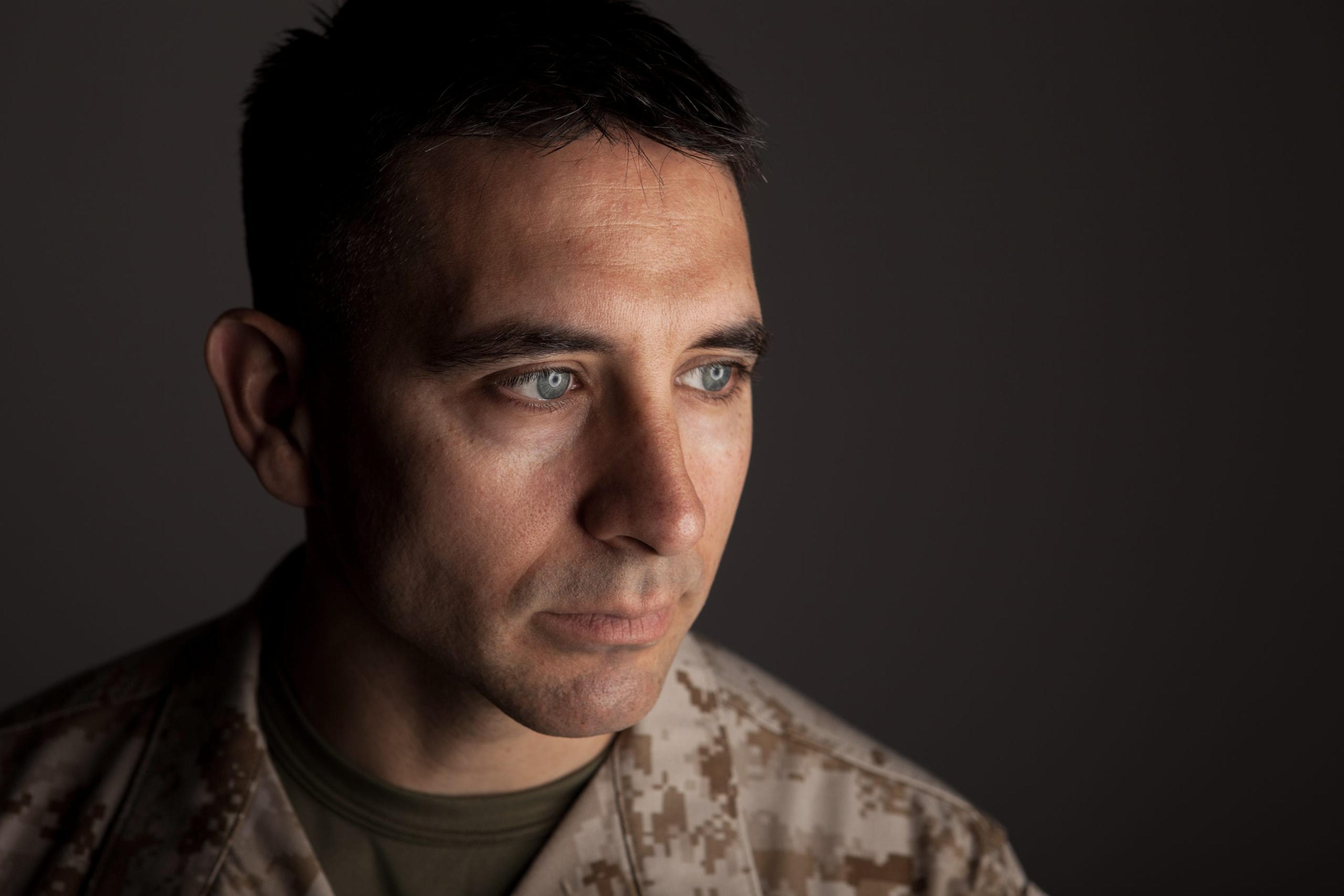Innovative Veteran Outreach Breaks through Mental Health Stigma
Julie Bitely
| 5 min read

The earned wisdom Dick Overton most often shares with returning military veterans is simple but something he feels deeply they need to hear.
There’s nothing wrong with you. What you’re experiencing is normal. You’re going to be okay.
As a volunteer veteran with the Buddy-to-Buddy Program, this is the advice he offers service members returning to life after deployment or after their military career ends. As a Vietnam veteran diagnosed with post-traumatic stress disorder (PTSD), it’s a message Overton received long ago from a counselor who helped him process his own return home. Overton said everything looked and seemed the same, but he didn’t know how to understand that his experiences had drastically altered how he was interacting with the world. “When you’ve had some deeply profound experiences as a soldier, you don’t realize it’s changed your software a little bit inside,” he explained. That sense of understanding that veterans share powers the Buddy-to-Buddy Program, which is part of M-SPAN (Military Support Programs and Networks), a group of programs at the University of Michigan Depression Center developed to address the needs and challenges faced by service members, veterans and military families. The peer-to-peer program trains volunteer veterans to provide support in addressing issues ranging from accessing financial, employment, legal, benefit, or educational resources to identifying mental health providers for emotional, substance abuse or relationship concerns. Since the program’s inception in 2009, more than 5,500 service members and veterans in Michigan have received support. Volunteers don’t serve as professional counselors, but they do provide an important link to services for veterans who might be reluctant to admit they’re struggling. They also play a powerful role in normalizing the experience a returning veteran has to civilian life. They know what it means to have served, so they have credibility that traditional mental health providers might not have in the eyes of someone who’s been deployed. “The use of peers has become very powerful and very effective in helping veterans access services and decrease the stigma around needing support and decreasing isolation,” explained Jane Spinner, director of M-SPAN. It builds on the military ethos of “leave no one behind,” connecting veterans to help and support one another. Finding innovative ways to reach veterans struggling with mental health issues is a national imperative. Last month, a task force was commissioned to address the problem of veteran suicide, which claims nearly 20 lives every day, a rate one and a half times higher than non-veterans. Between 11 and 20 percent of veterans who served in Operations Iraqi Freedom and Enduring Freedom have PTSD, the effects of which trickle outward to spouses and children, who also disproportionately experience depression, anxiety, PTSD and emotional and behavioral concerns. Of veterans with PTSD, more than 20 percent also have some type of substance use disorder. Grant funding from the Blue Cross Blue Shield of Michigan Foundation and the Flinn Foundation is helping the Buddy-to-Buddy Program expand services to underserved counties in Michigan, particularly in rural areas. The program has also been able to hire an outreach coordinator who targets these underserved locations for outreach and engagement, works to keep volunteers trained on best practices regarding mental health red flags, and provides updates on resources available to veterans. Overton said he would have liked to have had something like Buddy-to-Buddy when his service ended. The Marine Corps veteran served from 1969 to 1971 and spent seven months in Vietnam. He also served in the reserves through 1976, using the G.I. bill to earn his business degree from Ferris State University. After a stint in law enforcement, the now 68-year-old spent his career in business management. He serves as the quartermaster for VFW post 6248 and lives in Decatur in southwest Michigan. He recalls coming home on a Wednesday, sleeping all day Thursday and starting a factory job on a Friday. He noticed the concerns his peers had seemed trivial after seeing war firsthand. Loud noises startled him. He gave up deer hunting after he got back because being in the woods knowing that there were likely other people out there with guns he couldn’t see made him uneasy. Fortunately, he found a counselor who helped him recognize that the defensive, high-alert way he operated in the military for self-preservation wasn’t serving him as well at home. “We don’t really know how much we’ve stepped aside from the experience of all our peers until things start to show up,” he said. Being able to show younger veterans there is a positive path forward has been rewarding to Overton. He’s had conversations with young men contemplating suicide and helping them know that tomorrow is something they deserve is a way to give back. “It’s been great for me to partner with these young people,” Overton said. “I’ve gotten as much out of it as they have.” It’s a sentiment echoed by other volunteers, said Michelle Kees, clinical psychologist and associate professor, Department of Psychiatry, University of Michigan. “Some of our veterans who serve as volunteers – they didn’t have easy experiences. To take that difficult experience and reframe it by giving back to someone else can help re-write that hurt and trauma,” Kees said. Learn more about the Buddy-to-Buddy Program at its website, which includes information on how to access help or to volunteer. If you are someone experiencing suicidal thoughts or are worried about someone you know, call the National Suicide Prevention Lifeline: 1-800-273-8255. TTY: 1-800-799-4889. You might also enjoy:
Photo credit: MTMCOINS





